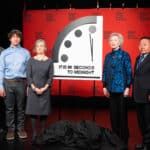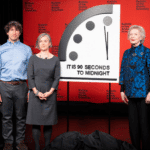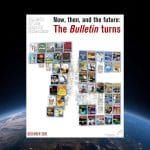What will be in the ban?
By Ray Acheson | April 3, 2017

Participants in nuclear ban talks agree broadly on the core prohibitions and obligations they want to see enshrined. As discussions last week showed, though, on some provisions—like how to conduct verification and prevent stockpiling—opinions diverged.
At the negotiations among some 120 nations plus civil society organizations, there was near-universal agreement to prohibit the stockpiling, use, deployment, acquisition, development, and production of nuclear weapons, as well as to ban giving any assistance, encouragement, or inducement to do any of these things. At the Wednesday session, participants showed overwhelming support for prohibiting the transfer of nuclear weapons, which is important for preventing so-called “nuclear sharing” arrangements under which a state hosts an ally’s atomic bombs. There was also very broad support for including an explicit prohibition on financing nuclear weapon-related activities, though some states raised questions about how this would work.
As expected given the sheer number of participants attending the talks, there were sticking points too.
What is viable verification? The extent of required verification, and how that should relate to future disarmament efforts, was a matter of some debate. Argentina and Switzerland seemed to suggest that the treaty would be relatively meaningless without a means to verify compliance, with the Argentinian representative saying it would be nothing more than a “symbolic declaration” if it did not contain strong verification mechanisms.
Most participating states, however, do not share this view. Most believe that existing verification mechanisms, including those under the Nuclear Non-Proliferation Treaty and nuclear-weapon-free-zone treaties, are sufficient.
Stockpiling and disarmament. Even though all states seemed to agree that stockpiling should not be allowed, there was not unanimity on how to put a stop to it. Should the new treaty set out provisions to eliminate stockpiles, or leave that for later negotiations with nuclear-armed states? Only a very small minority of states seemed to think the ban treaty should try to lay out a detailed disarmament process at this time.
Divergent views on testing. While there was broad support for including a specific prohibition on testing, some expressed concern that this would undermine the Comprehensive Nuclear Test Ban Treaty. Others hold the opposite view: that a new prohibition on testing would reinforce the norm against it, and that leaving it out could create a loophole. Some states believe that any ban on development of nuclear weapons would by definition include testing. As Ireland said, though, this does not preclude the need for an explicit testing prohibition.
Threatening words. Not all participants concurred on whether threatening to use nuclear weapons should be prohibited under the new treaty. Some states, like Austria and Mexico, suggested that banning the threat of use was not necessary. Austrian Ambassador Thomas Hajnoczi argued that there “is already a general prohibition on the threat of use of (armed) force in the UN Charter” and that including a prohibition on threatening to use nuclear weapons “could be seen as calling into question the validity of that more general norm.” Others argued otherwise. South Africa’s Ambassador Nozipho Mxakato-Diseko said including the threat of use “would be key to the effort to delegitimize the concept of nuclear deterrence.”
Moving weapons around. Many states supported the inclusion of a provision banning transit and transshipment of other states’ nuclear weapons. Austria, though, argued that such a ban was too complicated, and sees transit as being already included in any ban on nuclear weapon-related assistance.
Despite these issues, which negotiation participants continued to discuss informally late last week, it appears that there is strong convergence among the vast majority of participants on the core prohibitions for this treaty.
This post is part of Ban Brief, a series of updates on the historic 2017 negotiations to create a treaty banning nuclear weapons. Ban Brief is written by Tim Wright, Asia-Pacific director of the International Campaign to Abolish Nuclear Weapons, and Ray Acheson, director of Reaching Critical Will.
Together, we make the world safer.
The Bulletin elevates expert voices above the noise. But as an independent nonprofit organization, our operations depend on the support of readers like you. Help us continue to deliver quality journalism that holds leaders accountable. Your support of our work at any level is important. In return, we promise our coverage will be understandable, influential, vigilant, solution-oriented, and fair-minded. Together we can make a difference.
Topics: Announcement














